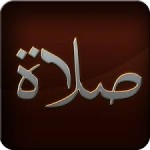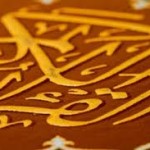Why so many sects in Islam?
Shortened Question:
A revert confused with several sects in Islam
Question:
There are many sects in Islam and each of them claims that they are the true Muslims. Sunni, Shia, Ibadhi, Ismaili, Sufi, Wahhabi, Ahmadi, Druze, Alawwi, Tablighi Jaamat, Hanifi, Shafi, and what not? I am so confused like is it really mandatory to categorise one religion in to many sections. Seriously, I hear a new name every day. I don’t even know what Sheikh to take advice from or what books I should read apart from the Qur`an. According to my Shia friend, the Hadiths are not true and it seriously confused me.
I am genuinely scared to listen to a certain Sheikh or read a book about Islam without feeling like what if it`s all wrong and I am practising shirk. For the past 8 months, I have been reading the Qur`an only. How do I deal with this and how will I know who is right and who is wrong?
Shouldn’t we all be following the Qur`an and the Sunnah of the Prophet peace and blessing of Allah be upon he?
I think with all these names going around its really hard for the newly practising Muslims to catch up, for instance what if they are unintentionally misguided and they follow the wrong people?
I think this problem should be addressed its really getting out of hands. I don’t if you guys are on twitter or not but almost every night there are arguments among the Muslim youth and it’s just really sad to see this. I thought Islam is supposed to be bringing us close not drifting us apart, I know for a fact that if it’s CORRECTLY followed these problems wouldn’t have taken place.
But yeah what are your opinions on this subject? Do you think we should have labels that divide the Ummah because right now it looks like it doing more bad than good (well at least in my eyes?)
Answer:
In the Name of Allah, the Most Gracious, the Most Merciful.
As-salāmu ‘alaykum wa-rahmatullāhi wa-barakātuh.
Sister in Islam,
You are fortunate Almighty Allah bestowed you with the gift of Iman (faith) to grant you eternal salvation and emancipation from the fire of Hell. May Allah preserve your faith and keep you steadfast. Ameen.
We acknowledge your predicament and we supplicate to Allah to dispel your doubts and assist you in finding the truth.
At the outset, it is fundamental to know that Islam is a simple religion. Consider the following Hadith:
الإِسْلَامُ أَنْ تَشْهَدَ أَنْ لَا إِلَهَ إِلَّا اللَّهُ، وَأَنَّ مُحَمَّدًا رَسُولُ اللَّهِ وَتُقِيمَ الصَّلَاةَ، وَتُؤْتِيَ الزَّكَاةَ، وَتَصُومَ رَمَضَانَ، وَتَحُجَّ الْبَيْتَ إِنِ اسْتَطَعْتَ إِلَيْهِ سَبِيلًا
Translation: “Islam is that you witness that there is no deity except Allah and that Muhammad is the messenger of Allah and that you establish Salah and discharge Zakah and that you fast in Ramadan and perform the Hajj if you have the ability to.[1]”
The basic pillars of Islam have been highlighted in this Hadith and are unanimously agreed by all Muslims. Added to that, one needs to stay away from the major sins. Gradually, a person becomes accustomed to the practices ordained by Allah Ta’ala and grows a natural dislike towards the prohibited actions. Islam is a “law book” in order to ease and facilitate our stay in this world.
We will now try to dispel some of your doubts.
- Your statement: “I don’t even know what Sheikh to take advice from or what books I should read apart from the Qur`an”
It is imperative that you ensure the source of your knowledge about Islam is sound and reliable. Muhammad ibn Sīrīn (d. 110 H) (may Ta`ala have mercy on him) said:
إن هذا العلم دين فانظروا عمن تأخذون دينكم
Translation: Indeed, this knowledge is religion, so be cautious of whom you take your religion from.[2]”
Furthermore, the person from whom you take religious knowledge should be of sound character and a person of piety. The great hadith scholar, Yahyā ibn Ma‘īn (d. 233 H), said:
آلة الحديث الصدق والشهرة والطلب وترك البدع واجتناب الكبائر
“The apparatus of hadith (and religious knowledge) is integrity, recognition (amongst the scholars), pursuit (of Deenī knowledge), abandonment of innovations and avoidance of major sins.[3]”
The great Faqīh from the Tābi‘īn, Ibrāhīm al-Nakha‘ī (d. 96 H), said, in describing the practice of the scholars of his time:
كانوا إذا أتوا الرجل ليأخذوا عنه نظروا إلى سمته وإلى صلاته وإلى حاله ثم يأخذون عنه
“When they would come to a man to take (religious knowledge) from him, they analysed his conduct, his Salāh and his state, and then [if these were to standard], they took from him.[4]”
In general, you should acquire religious knowledge from someone who adheres to the sunnah of Prophet Muhammad (peace be upon him) in creed and conduct, and the path of his noble companions (may Allah be pleased with them all).
Furthermore, the group, institution or the scholar from whom you take your knowledge about Islam should be adherents to one of the four schools of fiqh, namely, the schools of thought of Imam Abu Hanīfah, Imam Malik, Imam al-Shāfi‘ī and Imam Ahmad ibn Hanbal (may Allah be pleased with them all).
- Your statement: How do I deal with this and how will I know who is right and who is wrong? … Shouldn’t we all be following the Qur`an and the Sunnah of the Prophet peace and blessing of Allah be upon he?
We also acknowledge your concern pertaining to the various sects in Islam. This was prophesised by Allah`s Messenger (peace be upon him) in the following Hadith:
وإن بني إسرائيل تفرقت على ثنتين وسبعين ملة، وتفترق أمتي على ثلاث وسبعين ملة، كلهم في النار إلا ملة واحدة، قالوا: ومن هي يا رسول الله؟ قال: ما أنا عليه وأصحابي
Translation: Indeed the children of Isra’il split into seventy-two sects, and my Ummah will split into seventy-three sects. All of them are in the Fire Except one sect.” He said: “And which is it O Messenger of Allah?” He said: “What I am upon and my Companions.”[5]
It is explicit from the above narration that the ummah will be divided into seventy-three different sects except for one. Then, Prophet Muhammad (peace be upon him) himself, defined the group that is on the haqq (truth) and rightful heirs of paradise as those that hold fast to the practices of “what I and my companions are upon.”[6]
The name with which this methodology has become known is-, “Ahl as-Sunnah wa l-Jamā‘ah”, – adherents of the Sunnah and the Group, meaning, the Sahābah.[7]
Linguistically, “Ahl” means ` the people of`, “as-sunnah” means `the ways of Prophet Muhammad (peace be upon him) ` and “al-jama`ah” means `group`.
Hence, “Ahl as-Sunnah” refers to those who adhere to the sunnah of Prophet Muhammad (peace be upon him). Consider the following narrations:
مَنْ رَغِبَ عَنْ سُنَّتِي فَلَيْسَ مِنِّي
Translation: “He who turns away from my sunnah, he has no relation with Me.[8]”
تَرَكْتُ فِيكُمْ أَمْرَيْنِ لَنْ تَضِلُّوا مَا تَمَسَّكْتُمْ بِهِمَا كِتَابِ اللَّهِ وَسُنَّةِ نَبِيِّهِ صَلَّى اللَّهُ عَلَيْهِ وَسَلَّمَ
Translation: “I am leaving behind two things with you; if you stay steadfast upon them, you will not be lead astray: Allah`s book (Qur`an) and the sunnah of his Prophet (peace be upon him)”.[9]
أحسن الكلام كلام الله، وأحسن الهدي هدي محمد صلى الله عليه وسلم
Translation: “The best of word is the word of Allah and the best of guidance is the guidance of Muhammad (peace be upon him).”[10]
“Ahl al-Jama`ah” refers to those people who adhere to the ways and practices of the group of companions of Prophet (peace be upon him) – may Allah be pleased with them all. Consider the following narrations:[11]
فَعَلَيْكُمْ بِسُنَّتِي وَسُنَّةِ الْخُلَفَاءِ الْمَهْدِيِّينَ الرَّاشِدِينَ، تَمَسَّكُوا بِهَا وَعَضُّوا عَلَيْهَا بِالنَّوَاجِذِ
Translation: “You must then follow my sunnah and that of the rightly-guided caliphs. Hold to it and stick fast to it.”[12]
أَصْحَابِي كَالنُّجُومِ، فَبِأَيِّهِمُ اقْتَدَيْتُمُ اهْتَدَيْتُمْ
Translation: “Verily, my companions are like stars, whichever of them you use as a guide, you will be rightly guided.”[13]
مَا رَآهُ الْمُسْلِمُونَ حَسَنًا فَهُوَ عِنْدَ اللَّهِ حَسَنٌ
Translation: “What the Muslims determine to be good is good with Allah.”[14]
We can gather from the above discussion that those who hold onto the fundamentals of Islam, the Qur`an, and the ways of the Prophet (peace be upon him) and the Sahaba (may Allah be pleased with them all) are on the true message of Islam. The minor differences in jurisprudence can be tolerated, such as that of the four schools of thought – Hanafi, Maliki, Shafi`i and Hanbali schools. Prophet Muhammad practiced various ways based on different reasons. Allah, through his infinite wisdom, destined the four schools to revive, adopt and maintain the different ways illustrated to us by Prophet Muhammad. There may be many seemingly contradictory views but this demonstrates diversity and tolerance in Islam as Prophet Muhammad states, “the differences in my ummah is a source of mercy.”
All the four schools use evidence from the Sunnah are on the correct path. For example, in one narration it is recorded that Prophet (peace be upon him) used to raise his hands till his blessed shoulders while it is proven in another narration that he raised his hands till his ears. Hence, different companions preserved difference practices of Prophet (peace be upon him); while Abdullah bin Abbaas (May Allah be pleased with him) would raise his hands before and after ruku, Abdullah bin Masood (May Allah be pleased with him) would not.
As the years passed and all the Sahabah passed away, the Ummah had to now rely on what was narrated to them. Hence, they had to thoroughly study every narration and try their best to reconcile or give preference to one narration over the other. This was a daunting and cumbersome task which required people to spend their entire lives in acquiring knowledge and memorizing hundreds of thousands of narrations. Since it was not possible for every person to sacrifice their lives in acquiring knowledge, the vast majority of the Ummah consented to following one of the four schools. The primary reason for restricting people to follow one of these four schools of thought is that the students of these four schools codified and systemized the principles and laws of their respective Imam. Thus, the commentators of Qur`an and Hadith, Philosophers, Jurists and Academics of the past twelve centuries strictly adhered to these four schools thoroughly scrutinizing and refining every view of the school of thought. In this way all the various actions of Prophet (peace be upon him) is still practiced in the world. The adherents to these four schools accept and respect each other’s school. In reality, true unity is in following a school (taqlid). Imagine if we have to independently go back to hadith and find all these contradictions, each one of us would arrive to a different conclusion. Maulana Ashraf ‘Ali Thanwi (may Allah be pleased with him) stated, “Our deen is systemized through taqlid.”[15]
Your statement: “According to my Shia friend, the Hadiths are not true and it seriously confused me.”
Lastly, you should avoid the Shia friend. There is a large material of prophetic narrations which is mutawatir (beyond doubt) and similar to a verse of the Qur’aan in its authenticity. To reject such is disbelief.
Sister in Islam, we hope we have clarified some of your doubts. In order for the matter to be clarified further, could you please clarify the country and the district of your residence? We will try our best to ally you with a local reliable Muslim organisation. For meantime, we advise you read the following:
- “The Noble Qur`an” – a translation of the Qur`an by Mufti Muhammad Taqi Uthmani, found at: https://archive.org/details/QuranWithEnglishTranslationByTaqiUsmani
- “The virtues of actions” (Fadha`ile A`mal) written by Sheikh Muhammad Zakariyya Kandhalvi found at: http://www.scribd.com/doc/34555215/Fazail-e-A-maal-By-Shaykh-Zakariyya-Kandhelvi-Complete-English
- “Lessons in Islam” (Taleemul Islam) authored by Mufti Kifayatullah, found at: https://archive.org/details/Taleem-ul-Islam-English-ByShaykhMuftiKifayatullahr.a
- Also refer to idealwoman.org website, dedicated for Muslim females of all works of life
You may also refer to the following link on our website pertaining to the challenges of reverts:
http://www.askimam.org/public/question_detail/27256
And Allah Ta’āla Knows Best
Hanif Yusuf Patel
Student Darul Iftaa
UK
Checked and Approved by,
Mufti Ebrahim Desai.
References
صحيح مسلم [1
[2] صحيح مسلم، قديمي كتب خانه، ١:١١
[3] الجامع لأخلاق الراوي وآداب السامع، المؤسسة الرسالة، ١:١٩٣
[4] الجامع لأخلاق الراوي وآداب السامع، المؤسسة الرسالة، ١:١٩٣
[5] قال رسول الله صلى الله عليه وسلم: ليأتين على أمتي ما أتى على بني إسرائيل حذو النعل بالنعل، حتى إن كان منهم من أتى أمه علانية لكان في أمتي من يصنع ذلك، وإن بني إسرائيل تفرقت على ثنتين وسبعين ملة، وتفترق أمتي على ثلاث وسبعين ملة، كلهم في النار إلا ملة واحدة، قالوا: ومن هي يا رسول الله؟ قال: ما أنا عليه وأصحابي [جامع الترمذي، ابواب الإيمان، باب ما جاء في من يموت وهو يشهد، ج٤، ص٣٢٣، دار الغرب الإسلامي]
[تجليات صفدر، اهل سنة والجماعة، ج١، ص٩٧-٩٩، مكتبة امدادية] [6]
[7] [وفي البخاري] فمن رغب عن سنتي فليس مني [صحيح البخاري، كتاب النكاح، باب الترغيب في النكاح، ج٧، ص٢، دار طوق النجاة]
[كذا في صحيح مسلم]
[وكذا في سنن النسائي]
[وقد ذكر في الدر المنثور] عَن ابْن عمر عَن النَّبِي صلى الله عَلَيْهِ وَسلم فِي قَوْله تَعَالَى {يَوْم تبيض وُجُوه وَتسود وُجُوه} قَالَ: تبيض وُجُوه أهل السّنة وَتسود وُجُوه أهل الْبدع
[وفيه ايضا] عَن أبي سعيد الْخُدْرِيّ أَن رَسُول الله صلى الله عَلَيْهِ وَسلم قَرَأَ {يَوْم تبيض وُجُوه وَتسود وُجُوه} قَالَ: تبيض وُجُوه أهل الْجَمَاعَات وَالسّنة وَتسود وُجُوه أهل الْبدع والأهواء
[وفيه ايضا] عَن ابْن عَبَّاس فِي هَذِه الْآيَة قَالَ {تبيض وُجُوه وَتسود وُجُوه} قَالَ تبيض وُجُوه أهل السّنة وَالْجَمَاعَة وَتسود وُجُوه أهل الْبدع والضلالة [الدر المنثور، سورة آل عمران، الآية ١٠٦، ج٢، ص٢٩٢، دار الفكر]
[كذا في صحيح البخاري [8]
[9] [موطأ الإمام مالك، كتاب الجامع، باب النهي عن القول بالقدر، ج٢، ص٧٠، مؤسسة الرسالة]
[10] [سنن النسائي، كتاب السهو، نوع آخر من الذكر بعد التشهد، ج٣، ص٥٨، مكتب المطبوعات الإسلامية]
[11] كُنْتُمْ خَيْرَ أُمَّةٍ أُخْرِجَتْ لِلنَّاسِ (Ali Imran, 3:110)
وَكَذَلِكَ جَعَلْنَاكُم أُمَّةً وَسَطًا (al-Baqara, 2:143)
مُحَمَّدٌ رَسُولُ اللَّهِ وَالَّذِينَ مَعَهُ (Al-Fath: 29)
[12] [سنن ابي داؤد، كتاب السنة، باب في لزوم السنة، ج٤، ص٢٠٠، المكتبة العصرية]
[كذا في ابن ماجه]
[13] [مشكاة المصابيح (رواه رزين)، كتاب المناقب، باب مناقب الصحابة، ج٣، ص١٦٩٦، المكتبة الاسلامي]
[14] [المقاصد الحسنة، الباب الاول، حرف الميم، ج١، ص٥٨١، دار الكتاب العربي]
161أشرف الجواب [15]
DISCLAIMER:
The Ask Our Imam site hopes to respond to queries relating to Islamic law. It is not an Islamic Law Shari`ah Court. The questions and answers found on this website are for educational purposes. However, many of the rulings rendered here are distinct to the specific scenario and thus should be read in conjunction with the question and not taken as a basis to establish a verdict in another situation or environment. This site bears no responsibility in these responses being used out of their intended context, nor to any party who may or may not follow the responses given and is being hereby exempted from loss or damage howsoever caused. None of the responses rendered may be used as evidence in any Court of Law without prior written consent of Our Imam. Any reference to another website or link provided in our responses or article should not be taken as an endorsement of all the content on that website; in fact, it is restricted to the particular material being cited.
Posted in Aqaa'id (Beliefs)MiscelleaneousQur'an & Hadeeth on 26th Jan 2016 by Our Imam | 3592 Views











